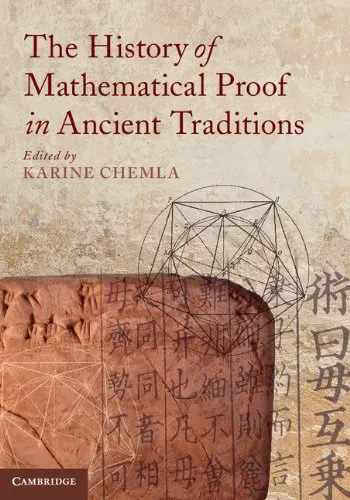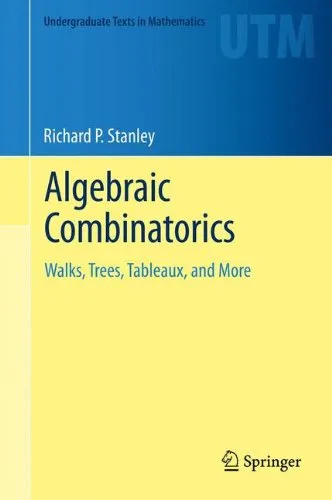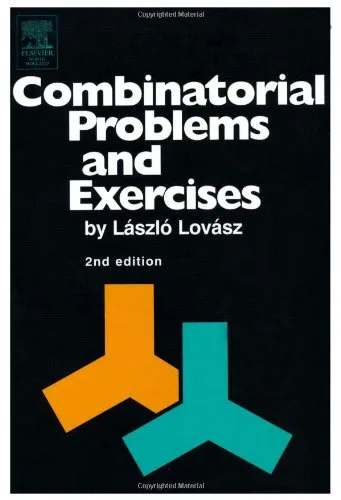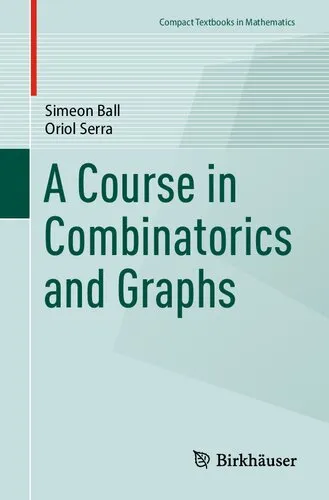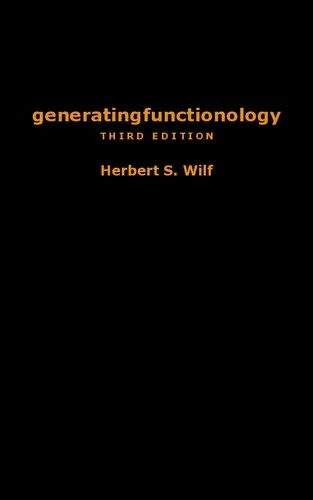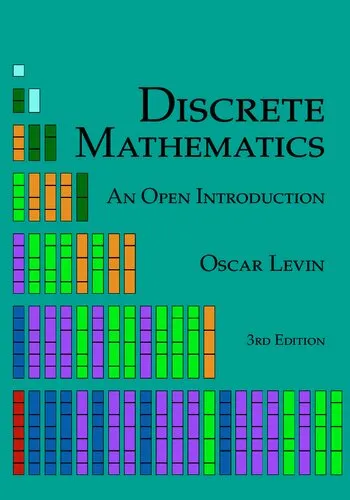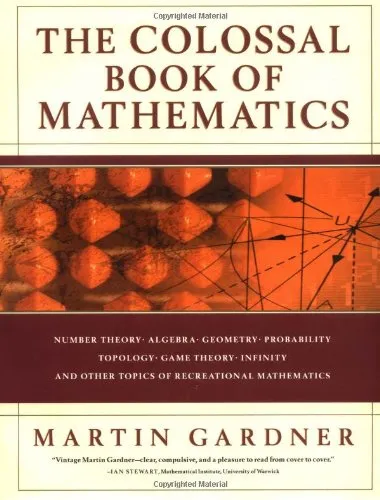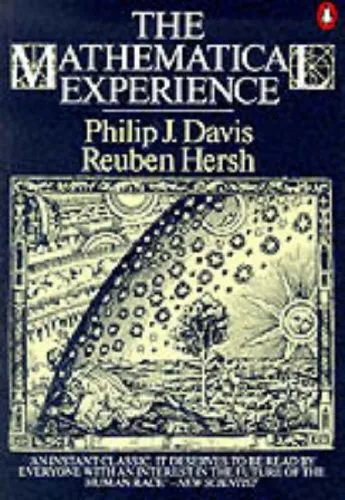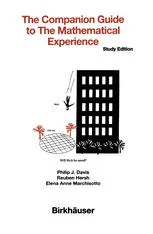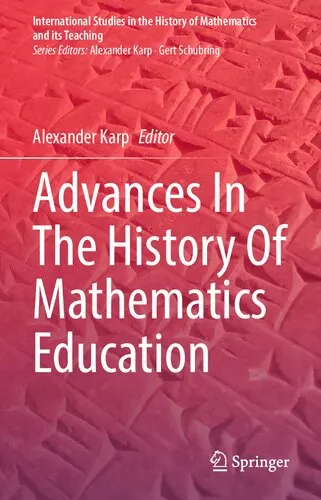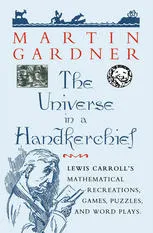The History of Mathematical Proof in Ancient Traditions
4.0
Reviews from our users

You Can Ask your questions from this book's AI after Login
Each download or ask from book AI costs 2 points. To earn more free points, please visit the Points Guide Page and complete some valuable actions.Related Refrences:
Introduction to "The History of Mathematical Proof in Ancient Traditions"
"The History of Mathematical Proof in Ancient Traditions" is a monumental work that explores how diverse cultures in the ancient world developed and used mathematical proofs. Edited by Karine Chemla, this book brings together perspectives from leading scholars worldwide, making it a definitive source on an important yet often under-explored topic in the history of mathematics. The book delves deeply into the epistemological foundations, practices, and philosophical perspectives surrounding mathematical proof across ancient civilizations, turning the spotlight on cultures such as ancient China, India, Greece, and the Islamic world.
In this extensive collection of essays, readers are invited to understand how mathematical reasoning was formalized in different intellectual traditions, what roles proofs played within their specific contexts, and how this understanding shaped the global history of mathematics. The book’s interdisciplinary approach introduces themes at the intersection of mathematics, philosophy, history, and culture, making it a compelling read for specialists and enthusiasts alike.
Detailed Summary of the Book
This book examines the rich heritage of proving mathematical propositions in ancient civilizations, providing a comparative analysis of methods and practices across cultures. It connects the methodology of mathematical proof-making to the larger intellectual frameworks of the societies in which they arose, such as their philosophical, religious, and educational systems.
The volume is divided into several chapters, written by renowned experts, which collectively shed light on ancient China’s systematic use of algorithms, the logical rigor employed in Greek geometry, and the innovative contributions of Indian mathematicians to algebraic thought and combinatorics. Additionally, the Islamic mathematical tradition is discussed, highlighting its synthesis of Greek, Indian, and Persian knowledge to create new forms of logical arguments.
What sets this book apart is its emphasis on contextualizing mathematical proofs within the social and intellectual environments that shaped them. For instance, the book explores how proofs functioned as pedagogical tools, cultural artifacts, and instruments of intellectual authority. By doing so, it offers an unparalleled view of both the universality and specificity of mathematical practices across ancient traditions.
Key Takeaways
- Mathematical proofs are not only logical constructs but also cultural artifacts that reflect the intellectual priorities of the societies in which they were developed.
- Different ancient civilizations approached mathematical proof-making in unique ways, yet a global perspective reveals shared goals and methodologies.
- The act of proving in mathematics was deeply tied to other domains, such as philosophy, allowing for an interdisciplinary understanding of knowledge systems.
- The use and acceptance of mathematical proofs evolved over time, showing a clear interaction between tradition, innovation, and cross-cultural exchanges.
Famous Quotes from the Book
"To understand the history of mathematics, one must first understand the history of proof. Proof is not merely a collection of rules; it is the soul of mathematical reasoning." – Karine Chemla
"The diversity of mathematical traditions is a testament to the human mind's capacity to create systems that explain, classify, and prove the workings of the universe." – Contributing Author
"Through studying ancient proofs, we see that knowledge is not static but dynamic and shaped by the societies that produce it." – Karine Chemla
Why This Book Matters
"The History of Mathematical Proof in Ancient Traditions" is an essential contribution to our understanding of how human beings have sought certainty in mathematics across cultures and centuries. It dismantles the conventional Eurocentric narrative of mathematics' history, emphasizing that mathematical proofs were not only thriving in classical Greece but were also vibrant and innovative in other parts of the world, such as China, India, and the Islamic world.
This book encourages readers to rethink the development of mathematics as a global, interconnected process rather than a linear progression confined to one cultural tradition. It sheds light on the diverse pathways through which mathematical thought has evolved and invites readers to appreciate the intellectual ingenuity of ancient societies.
Ultimately, this book matters because it reminds us of the power of proof, not only as a mathematical tool but also as a philosophical endeavor that seeks to establish truth. It broadens our understanding of what constitutes knowledge and underscores the universal human quest for understanding and explaining the world.
Free Direct Download
You Can Download this book after Login
Accessing books through legal platforms and public libraries not only supports the rights of authors and publishers but also contributes to the sustainability of reading culture. Before downloading, please take a moment to consider these options.
Find this book on other platforms:
WorldCat helps you find books in libraries worldwide.
See ratings, reviews, and discussions on Goodreads.
Find and buy rare or used books on AbeBooks.
1453
بازدید4.0
امتیاز0
نظر98%
رضایتReviews:
4.0
Based on 0 users review
Questions & Answers
Ask questions about this book or help others by answering
No questions yet. Be the first to ask!
